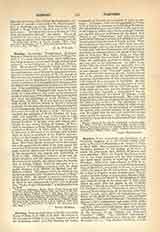

Fleming, THOMAS, Archbishop of Dublin, son of the Baron of Slane, b. in 1593; d. in 1655. He studied at the Franciscan College of Louvain, became a priest of the Franciscan Order, and after finishing his studiescontinued at Louvain for a number of years as professor. In October, 1623, he was appointed by Urban VIII to Dublin as successor of Archbishop Matthews. His appointment gave great offense to the opponents of the religious orders, and a bitter onslaught was begun against the new archbishop by the priest Paul Harris, in his “Olfactorium” and other brochures. Archbishop Fleming convened and presided at a provincial synod of the province of Dublin in 1640. When the Confederate War broke out (1641-1642) the archbishop, though rather a man of peace, felt constrained to take sides with the Confederates and despatched a procurator to represent him at the synod of the clergy held in Kilkenny (May, 1642). Later on, when the general assembly was convoked at Kilkenny for October, the archbishop resolved to attend personally and take part in the deliberations. As might be expected from his antecedents, and especially from his connection with the Anglo-Irish nobility of the Pale, he was opposed to the “thorough” policy of the Old Irish, and wished for peace at all costs. In 1643 he was one of the prelates who signed the commission em-powering representatives of the Confederates to treat with Ormond for a cessation of hostilities. He also opposed Scarampa and Rinuccini, the latter of whom was strongly identified with the Old-Irish party. In 1649, when all was lost, and the defeated Irish were confronted with Cromwell, a reconciliation was effected with Ormond at a synod of bishops, a step which Archbishop Fleming favored. But even then King Charles could not recognize his real friends, and the alliance was broken off. The remainder of the archbishop’s life was much disturbed by religious persecution carried on by the government of Cromwell. He died in 1655, and the severity of the persecution may be judged from the fact that until 1669 no successor could be appointed. The diocese was administered by vicars until the nomination of Peter Talbot in 1669.
JAMES MACCAFFREY

